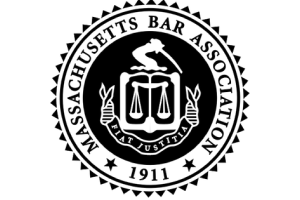Property Crimes

One of the most common type of criminal offense ordinary folks get charged with involve property crimes — things like property destruction and vandalism. Your neighbor wakes up in the morning to find a brick was thrown through their windshield; the same neighbor with whom you’ve had an ongoing property line dispute over the last five years. They assume it was you and you are suddenly accused of felony damage to a motor vehicle. Or your son’s school had a graffiti incident and a can of spray paint is found in your son’s locker, leading to charges in juvenile court.
The list goes on and on. While these charges may seem minor, they are often charged as felonies like malicious damage to a motor vehicle or vandalism, which can have serious repercussions. At Erkan & Sullivan, PC, We are here to help. From issues of intent and malice to overcharging by prosecutors and mistaken identity, our firm is committed to identifying the most effective strategies to defend your case.
Check out our specialized pages on vandalism, arson, home invasion and burglary, and robbery.
Theft offenses like white collar crime, insurance fraud and shoplifting are discussed separately. Click below for a link.
Breaking down the property damage offenses.
Wanton or Malicious Destruction of property:
G.L. c. 266, § 127 punishes this offense as follows:
Wanton destruction is a misdemeanor punishable by up to 2.5 years in the county jail and a fine of $1,000 or three times the value of the damaged property, whichever is greater, plus restitution.
Willful and malicious destruction of property is a felony punishable by up to ten years in prison and a fine of $3,000 or 3 times the value of the damaged property, whichever is greater, plus restitution. If the value of the damaged property is less than $1,200, the offense is a misdemeanor punishable to the same extent as wanton destruction.
Malicious Damage to a Motor Vehicle:
G.L. c. 266, § 28 is a felony carrying a maximum sentence of fifteen years in state prison and a $15,000 fine, plus restitution.
Tagging and Graffiti:
G.L. c. 266, § 126B is a misdemeanor carrying a sentence of up to two years in the county jail and a fine of $1,500 or not more than three times the value of the damaged property, whichever is greater, plus the cost of removing the tag / graffiti.
Arson:
G.L. c. 266, § 1 is a felony punishable by twenty years in the state’s prison and a fine of up to $10,000.
When an individual causes property damage incidentally while doing some act, the individual does not destroy the property “maliciously.” For example, an individual who breaks open an ATM to steal money, causing damage to the ATM, did not act with malice, because his goal was to get the money; the damage was incidental to that goal.
– Ryan Sullivan
Understanding Malice and Intent in Property Damage Cases
In cases of vandalism, malicious destruction of property, and arson, law enforcement may believe they have an open-and-shut case. However, these offenses are complex and require the prosecution to prove specific elements beyond a reasonable doubt. Having lawyers that understand these complexities and how to exploit them often makes all the difference.
The government frequently overcharges property damage offenses by filing a complaint for malicious destruction of property under G.L. c. 266, § 127 and, in the case of motor vehicles, G.L. c. 266, § 28. Most police and prosecutors think this charge is appropriate whenever anything is broken. That is not true. Rather, to make out these offenses, the government must prove beyond a reasonable doubt: (1) the accused injured or destroyed the property of another; (2) he acted willfully; and (3) with malice.
In the context of this offense, Massachusetts law defines “malice” as motivated by “cruelty, hostility, or revenge,” towards the owner of the property. Commonwealth v. Redmond, 53 Mass. App. Ct. 1, 4-5 (2011). When an individual causes property damage incidentally while doing some act, the individual does not destroy the property “maliciously.” For example, an individual who breaks open an ATM to steal money, causing damage to the ATM, did not act with malice, because his goal was to get the money; the damage was incidental to that goal. Commonwealth v. Doyle, 83 Mass. App. Ct. 384 (2013). A person throwing stones off of an overpass which end up hitting a car does not act with malice, but an individual shooting out a car window with a BB gun, whose purpose was simply to smash the window, acts maliciously. Commonwealth v. Cimini, 34 Mass. App. Ct. 925 (1993).
The practical effect of overcharging property damage crimes
The practical effect of overcharging under G.L. c. 266, § 127 (malicious destruction of property) is that, in most instances, that charge is a felony. The stakes become much higher, raising the maximum penalty from a county jail sentence of 2.5 years to a state prison sentence up to 10 years. This is not to mention all of the other consequences of a felony conviction, including loss of housing and employment, voting disenfranchisement, the loss of the Second Amendment right to bear arms, and a lasting criminal record.
Most lawyers overlook this distinction, to the tremendous disadvantage of their clients. At Erkan & Sullivan, PC our lawyers will level the playing field by ensuring that prosecutors don’t get to raise the stakes of an incident by filing trumped up charges. We may even be able to get the felony aspects of a charge dismissed before trial.
Damage thresholds
The value of the damaged property often determines whether an offense is a felony or a misdemeanor.
The magic number is $1,200 (in charges preceding 2018 amendments, the threshold was just $250!). If the value exceeds $1,200, the offense becomes a felony.
We have watched lawyers time and time again overlook any serious inquiry into the government’s evidence on this threshold issue, resulting in the conviction of their clients for serious felonies in the absence of proof substantiating the offense. In almost every property damage case, police will automatically opt for the felony charge. Not only does this wrongfully deprive the accused of their important right to a clerk’s hearing (click here to learn more about this critical procedural protection), but it sets the table for a serious, life-altering felony conviction that is totally unwarranted by the evidence.
In cases where property is damaged, police, prosecutors and victims will incorrectly assume that the felony threshold is controlled by the replacement value of the damaged item as a whole. This is not the law. It is not the replacement cost of the Mercedes with a broken window; it is the replacement or repair cost of the window itself. Most lawyers will sign their clients up for a plea in these cases, without seeking any proof. This is a mistake with huge consequences for the accused. Rather than accepting these claims at face value, we put the government to its proof. This often results in their failure.
In cases where property is damaged, police, prosecutors and victims will incorrectly assume that the felony threshold is controlled by the replacement value of the damaged item as a whole. This is not the law. It is not the replacement cost of the Mercedes with a broken window; it is the replacement or repair cost of the window itself.
– Murat Erkan
The true value of relentless defense
These cases typically rely on witness accounts. The ability to challenge this type of evidence varies greatly among lawyers. With over forty years of combined experience, both as prosecutors and defense lawyers, our ability to do so is unmatched.
Looking beyond the government’s claims.
With many lawyers, exploration of the facts of the case begins and ends with the police report. This is a huge mistake. The police report is written by the very people who are trying to lock you up. It is often a seriously skewed account, filled to the brim with assumptions and, often, mischaracterization of the actual evidence. For us, the police report is just a jumping off point.
Following review of its allegations, we conduct our own investigation into their accuracy. We will have our own investigators take witness statements — both from the government’s witnesses and from other people who may have knowledge. By doing so, we preview what the government’s witnesses will claim, which allows us to prepare to pick apart their stories and expose the motive and biases at play. We will also secure the testimony of other witness who may be able to cast doubt on the government’s account.
We will look at issues of identification, which is often a hugely important issue in these cases. Mistaken identification is a real problem in our courts. Our team will make sure you are not a casualty of mistaken identification flowing from flawed procedures.
Illegally obtained evidence.
Sometimes police uncover damning evidence linking our clients to the crime. For instance, sometimes they will convince our clients to make statements against their own interest. But they often use unfair tactics in doing so, such as making subtle suggestions that confessing is in their best interests, threatening to charge loved ones if our clients don’t confess, or simply failing to inform our clients of their so-called Miranda rights. When police obtain damaging statements, we will fight hard to keep them out of court. In many cases, we have succeeded in doing so. Remember: a confession is useless if a judge rules it inadmissible in evidence.
Other times, police may find evidence linking our clients to the crime by conducting searches. This is another area where having the right lawyers can make a huge difference. Search and seizure law is incredibly complex, and police often bend the rules in pursuit of evidence. We are experts in the field of search and seizure law, and have a remarkable record of success in getting illegally obtained evidence thrown out of court.
Property Damage Defense without Compromise.
If you or a loved one has been charged with a property damage offense, give us a call at (978) 474-0054 or send us an email. We will be glad to help.





